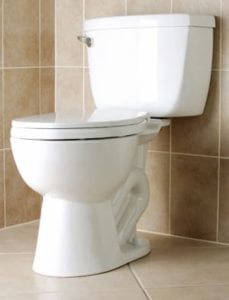There are still 2.5 billion people in the world without a basic toilet – a number that has remained unchanged for more than a decade following population increases and a lack of investment. Of these, some 1.1 billion still practice open defecation.
A recent joint WHO-UNICEF survey shows that the number of people living without an improved water source has dropped to 748 million worldwide. WaterAid’s deputy head of policy Tom Slaymaker said, “The report shines light on the massive inequality in access to these basic services, between rich and poor, urban dwellers and rural, between regions and among countries. Universal access to safe water and a basic toilet is critical if we are to succeed in ending extreme poverty by 2030. But it will require a formidable effort from governments, aid partners and communities and a clear commitment and focus on reducing inequalities.” The biannual report of the WHO-UNICEF Joint Monitoring Programme on Water Supply and Sanitation is a survey of nearly 200 countries tracking urban and rural access to improved water and sanitation. The data shows access to these basic but essential services in 2012.Barbara Frost, Chief Executive of WaterAid, said, “Though we are very glad to see progress, there is clearly a lot more to be done…. Without safe water, basic toilets and good hygiene practices, communities cannot lift themselves out of poverty. This report illustrates once again the need for action to ensure that the right to access water and sanitation services is available to everyone, everywhere.”
The report plays a key role in UN efforts to eradicate extreme poverty. Efforts on sanitation are so behind that they will fail to meet a UN Millennium Development Goal to halve the proportion of people without by 2015. The last interim review, published in 2013, found that there were 768 million people without an improved water source and 2.5 billion without basic sanitation. Water and sanitation facts:- since 1990, almost 2 billion people around the world have gained access to a basic toilet. The world’s population has also grown by about 2 billion
- about 2.3 billion people have gained access to improved water since 1990
- seven out of ten people without basic toilets, and more than eight out of ten people without safe water, live in rural areas
- nine out of ten people still practising open defecation live in rural areas
- countries where open defecation is more prevalent also have the highest numbers of deaths of children under 5, high levels of under-nutrition and poverty, and huge disparities between rich and poor
- Bangladesh has made strong progress on eliminating open defecation through public education and other initiatives – in 1990, 34% practiced open defecation; in 2012 that had dropped to 3%. Ethiopia has also made good progress, cutting in half the proportion of those defecating in the open from 76% in 2000 to 37% in 2012
- in Sub-Saharan Africa, there remain 344 million without safe water and 644 million without basic toilets.







